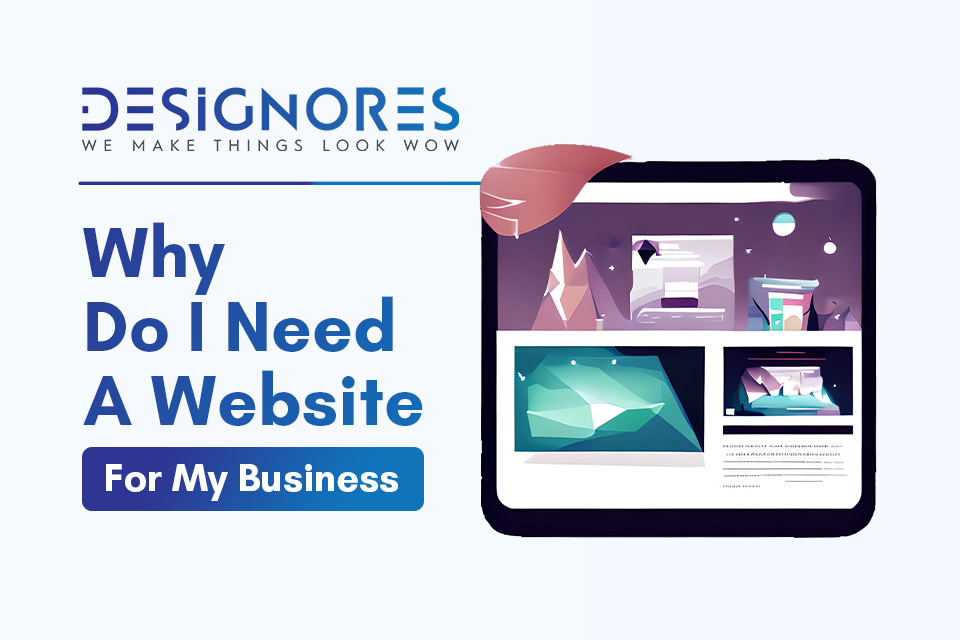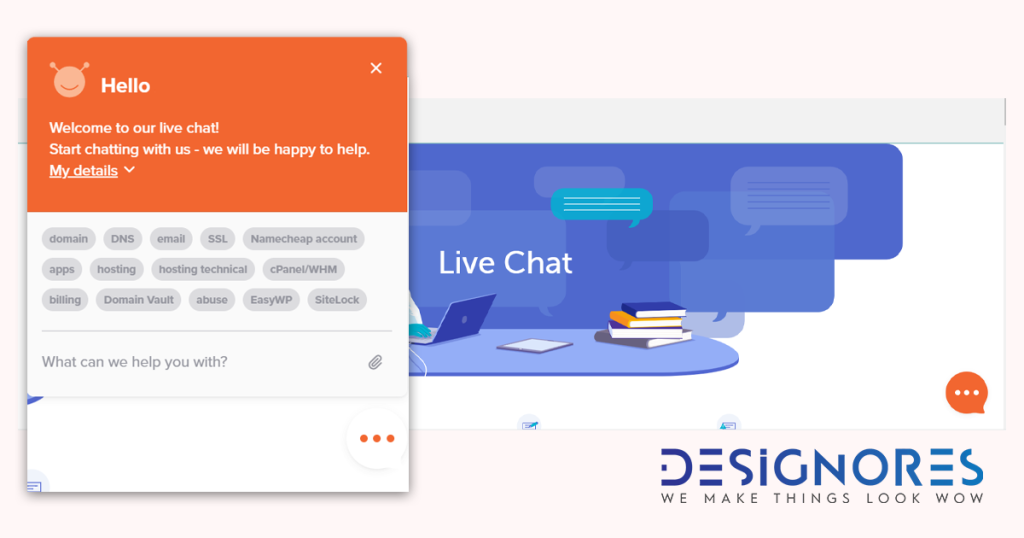Why Do I Need a Website for My Business In 2023? Top 11 Reasons

As the world continues to become more digital, more and more businesses are moving online to reach more customers and grow their brands. Having a website is no longer a choice in the business world of today; it’s a must. In this article, we’ll talk about, Why Do I Need a Website for My Business and how it can help any business to reach clients and boost sales.
Why it’s important to have a website
A website is a place on the Internet where a business can show off its products or services and its brand. It’s a virtual storefront where people can find information, talk to a business, and buy things or make reservations. In the digital age, we live in now, a business that wants to do well needs a website. Here are some reasons why it’s important for a business to have a website:
Having a website helps you have a strong presence online

In the digital age, we live in now, any business that wants to stay competitive needs to have a presence online. A website helps a business build a strong online presence by giving customers a place to find its products or services and contact information. A website can also help a business show off its brand, its values, and its mission statement.
A website makes a business look more trustworthy
A website is a great way to boost the credibility of a business. A business can look more professional, real, and trustworthy if its website is well-made. A website can also show off a business’s skills and success through testimonials, reviews, and case studies.
Sales and money can go up thanks to a website
A website can be a very effective way to bring in more sales and money. A website can make more sales and money than a physical storefront alone because it gives customers a place to buy products or services. A website can also help you upsell and cross-sell by showing you related products or giving you a discount for buying more.
A website helps you reach out to more people
A business can reach more people with a website than with just a storefront. A website can bring in customers from all over the world, no matter where they are or what time zone they are in. A website can also help customers who speak different languages by supporting more than one language.
A website gives customers a place to talk to you

A website gives customers a way to communicate with a business. Customers can use contact forms, live chat, or support tickets to ask questions, find out more, or give feedback on a website. A website can also have a knowledge base or a section called “Frequently Asked Questions” (FAQs) to answer common questions and give self-help tools.
A website is the most cost-effective way to market your business
When compared to other ways to market a business, like print ads or TV commercials, a website is a cheap way to do so. Traditional marketing methods cost a lot more than a website, but a website can bring in more traffic, leads, and sales for a lot less money. Through web analytics and conversion tracking, a website can also show results that can be measured.
Building a brand can be helped by a website
A website can help a business build its brand in important ways. By showing logos, colors, and messages that are consistent with the brand, a website can create a brand identity that is easy to recognize and remember. A website can also be used to share a brand’s values and mission statement, as well as testimonials, reviews, and case studies that show how knowledgeable and successful the brand is. All of these things can help a business’ brand become stronger and more appealing to customers.
A website can give you valuable data and information
A website can tell you a lot about how well a business is doing, how its customers act, and how well it markets itself. Using web analytics tools, a business can track website traffic, user engagement, conversion rates, and other key metrics. This information can help a business make smart choices about its online strategy and improve the way its website works.
Having a website helps you stay in the market
A business can stay competitive in the market with the help of a website. In the digital age we live in now, customers expect businesses to have websites where they can find information, make purchases, and interact with the business. If a business doesn’t have a website, it might lose customers to competitors who do.
A website can help a business grow and get bigger
A website can help a business grow and expand in many ways. A website can help a business reach new customers, enter new markets, and offer more products or services. A website can also be a place for businesses to work together and start new projects.
Things to think about when making a website
When making a website, there are many things to think about to make sure it works well and meets the needs of the business and its customers. A few of these things are:
- Why and what the website is for
- Who do you want to reach and who are your users are
- What a brand is and what it says
- Structure and navigation of the website, as well as content strategy and SEO
- The way things look and how they look
- How easy it is to get to and use
- Response to mobile devices and compatibility with them
- Safety and privacy of information
How to Make a Good Website for Your Business
A successful business website needs to be carefully planned, put together, and kept up to date. Here are some more tips to help you make a good website for your business:
Define the website’s purpose and goals: Before you start building your website, you need to be clear about what it’s for and what it wants to achieve. Are you trying to sell something, get people to contact you, or give them information? The goal of your website should be in line with the goals of your business as a whole, and its goals should be measurable and clear.
Find out about the target audience and user personas and do research on them: To make a website that your target audience likes, you need to know what they want, how they act, and what they need. Do market research and make user personas to learn more about what drives and hurts your audience.
Develop a content strategy that fits with the business’s goals and messages: The information on your website should be useful, interesting, and relevant to the people you want to reach. Create a content strategy that fits with your business’s goals and messaging, and use SEO techniques to optimize your content for search engines.
Using SEO techniques, make the website work better for search engines: Search engine optimization (SEO) is the process of making your website’s content and structure better so that it ranks higher on search engine results pages (SERPs). To improve your website’s SEO, you can do keyword research, use on-page optimization techniques, and build links.
Make sure the website is appealing to the eye, easy to use, and accessible to everyone: The design of your website should be appealing to the eye, easy to use, and accessible to everyone, even those with disabilities. Make sure your website works well on all devices and screen sizes by using a responsive design.
Test the website for ease of use, compatibility, and speed: Before you launch your website, test it for ease of use, compatibility, and speed. Use tools like Google PageSpeed Insights, GTmetrix, and BrowserStack to find and fix any problems that could hurt the user experience.
Using web analytics tools to track and analyze website metrics: To keep improving your website’s performance, use web analytics tools like Google Analytics to track and analyze website metrics. Use this information to find places to improve and make decisions based on the facts.
Update and improve the website all the time based on what users say and how well it does: Your site will never really be done. Update and improve your website all the time based on what users say and how well it is doing. Use A/B testing to try out different layouts and content strategies on your website and make it work as well as possible.
By using these tips, you can make a successful website for your business that helps you reach your goals and your target audience.
Conclusion – Why Do I Need a Website for My Business?
In the end, any business that wants to succeed in the digital age needs to have a website. A website can help a business build a strong online presence, increase sales and revenue, reach a wider audience, give customers a place to talk to each other, be cheaper than other marketing methods, help build a brand, give valuable analytics and insights, stay competitive in the market, and be a tool for growth and expansion. When designing a website, it’s important to think about things like its purpose and goals, it’s target audience and user personas, its brand identity and messaging, its structure and navigation, its content strategy and SEO, its visual design and aesthetics, its accessibility and usability, its mobile responsiveness and device compatibility, and its security and data privacy.
FAQs
Does my business need a website?
Yes, any business that wants to succeed in the digital age needs to have a website.
Why would it be good for my business to have a website?
A website can boost your credibility and online presence, help you reach more potential customers, boost sales, and help you compete with bigger companies.
How much does building a website cost?
How much it costs to build a website depends on many things, like its size and complexity, the features you want to add, and the platform you choose.
Do I need to hire a professional to build a website, or can I do it myself?
You can build your website with tools like Wix or WordPress, but if you want your site to look more professional, you might want to hire a web designer.
How do I start putting together a website for my business?
To get started, you’ll need to pick a domain name, a web hosting service, and a website builder or content management system (CMS). From there, you can start building your website and adding content.
